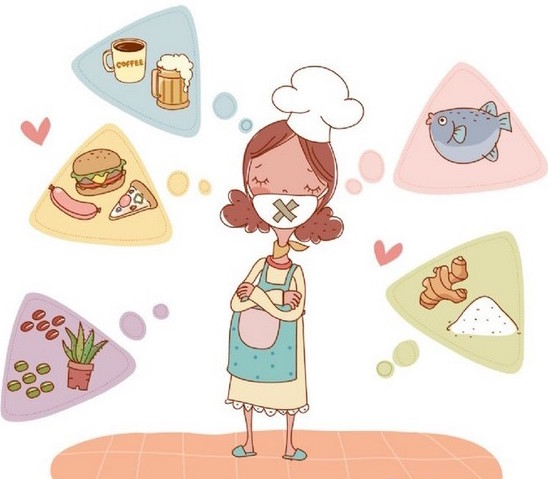Before I left China for Boston, my mother-in-law asked me about our arrangements post-birth — who would come to look after me and the newborn baby in April? In China, it’s common practice to have parents or in-laws stay with a new couple after childbirth for a year — or even longer. They’re like nannies who work 24/7 without pay and without time off — tempting? They take care of almost everything in the house, including the new parents. Because Chinese women are housebound the entire month after childbirth, our sole responsibility is to rest and feed the baby.
But American women are different. They start walking and taking showers soon after they give birth, and they typically take care of their newborns by themselves. They’re independent. So what’s the difference?
According to some Chinese, it all comes down to diet — women in the U.S. eat lots of meat, and they are strong. Seriously?

When I see a young mother pushing her two little toddlers in a stroller or out having lunch or enjoying a beautiful day in Boston, I think about how that would never happen in China without a husband or, in most cases, a grandparent by her side. That’s why my decision to handle pregnancy, childbirth, and parenthood with my husband alone — and not to let family come for an extended stay — was not very well received by our parents. We’ve also been constantly questioned by friends. My husband and I have challenged the rule that is religiously obeyed in China.
My mother was blunt: “You can’t do it.” My sister-in-law asked if we’d thought it through. Her daughter is brought up by my in-laws. She’s now 6 years old, and it’s still a must that my in-laws travel through half of China to take care of her during school vacations. A very dear friend of mine gave birth to a baby girl two months ago — her mother is helping her with the baby, her father is in charge of household chores (I have no idea what her husband does). Having help doesn’t always mean life is easier for new mums, though; when everyone wants to voice their opinions on parenting techniques, it can lead to tension in the house.
An American friend, Lisa, who has a 5-month-old baby girl, told me she spends 10 hours a day alone with her daughter. It’s not easy for her to be a full-time mum, but she loves to be with her daughter. She encouraged me by saying that if she can do it, I can do it.
But the question’s still there: What is it that makes such a big difference — that you can do it and we Chinese can’t? Is it because our minds are shaped into believing that we just aren’t capable, so we have to rely on outside help?
Or is it because you eat a different diet — and lots of meat? What does it take to become a strong, independent mom?












